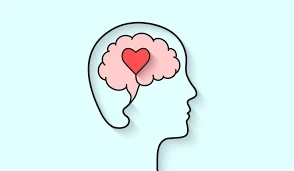Introduction
Mental health is an integral part of our overall well-being, and seeking professional help is crucial for those facing mental health challenges. In recent years, the establishment and growth of mental health clinics have provided individuals with dedicated spaces where they can receive comprehensive and specialized care. In this blog post, we will explore the significance of mental health clinics, their role in supporting mental well-being, and the array of services they offer to promote healing and recovery.
Safe Havens: Creating Supportive Environments
Mental health clinics serve as safe havens for individuals seeking professional support. These clinics are designed to provide a nurturing and compassionate environment where individuals can openly discuss their concerns, fears, and struggles. The physical spaces are often thoughtfully designed to promote relaxation and comfort, with soothing colors, natural elements, and privacy considerations.
Moreover, mental health clinics cultivate a culture of understanding and empathy, fostering trust and a sense of safety for clients. The presence of trained mental health professionals creates an atmosphere where individuals can freely express themselves without judgment or stigma, leading to more effective therapeutic outcomes.
Comprehensive Assessment and Diagnosis
One of the primary functions of mental health clinics is to conduct thorough assessments and diagnoses. Mental health professionals at these clinics employ a variety of evidence-based assessment tools and techniques to evaluate individuals' mental health status. Through comprehensive interviews, observation, and standardized assessments, clinicians gain a holistic understanding of clients' psychological, emotional, and behavioral well-being.
This rigorous assessment process enables accurate diagnoses and helps mental health professionals develop personalized treatment plans tailored to each individual's unique needs. The diagnostic process serves as a foundation for effective treatment and ensures that clients receive appropriate interventions specific to their conditions.
For more visit - mental health clinics in mumbai
Specialized Treatment Modalities
Mental health clinics offer a wide range of specialized treatment modalities to address various mental health conditions. These treatment options may include individual therapy, group therapy, family therapy, cognitive-behavioral therapy (CBT), dialectical behavior therapy (DBT), psychoeducation, and medication management, among others.
The availability of diverse treatment modalities ensures that individuals receive the most appropriate interventions for their specific concerns. Mental health professionals in these clinics are trained to use evidence-based practices and stay updated on the latest advancements in the field. This ensures that clients receive the highest quality of care, leading to improved mental health outcomes.
Collaborative Care and Holistic Approach
Mental health clinics often adopt a collaborative care model, where different professionals work together to provide holistic support. This multidisciplinary approach involves mental health therapists, psychiatrists, psychologists, social workers, and other allied professionals, who collaborate to address the diverse needs of clients.
By combining various perspectives and expertise, mental health clinics offer comprehensive and well-rounded care. The collaboration between professionals ensures that clients receive integrated treatment plans that consider not only their psychological well-being but also their social, emotional, and physical aspects.
Community Engagement and Outreach
Beyond individual treatment, mental health clinics play a crucial role in community engagement and outreach initiatives. These clinics organize workshops, educational programs, and support groups to raise awareness about mental health, destigmatize seeking help, and provide resources to the community.
Additionally, mental health clinics collaborate with schools, workplaces, and other community organizations to offer mental health support and promote mental well-being. By actively engaging with the community, mental health clinics help reduce barriers to accessing care, enhance mental health literacy, and create a supportive environment for individuals facing mental health challenges.
Conclusion
Mental health clinics serve as vital pillars in supporting mental well-being and fostering healing and recovery. By providing safe and compassionate environments, comprehensive assessments, specialized treatment modalities, collaborative care, and community engagement, these clinics play a pivotal role in addressing the complex and diverse needs of individuals seeking mental health support


